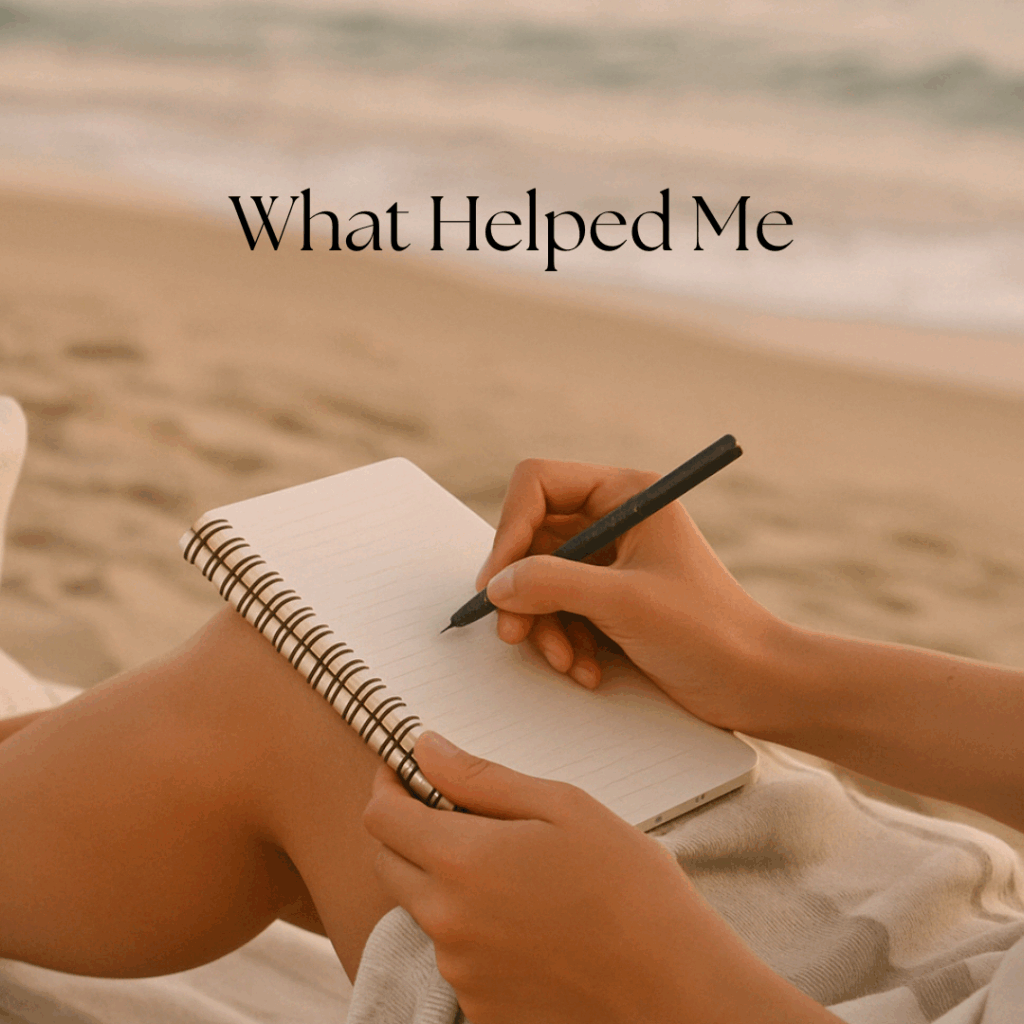Stonewalling in abusive relationships is one of those things that’s hard to spot at first. I used to think silence meant things were fine. No yelling. No slamming doors. Just quiet.
And I craved that quiet.
Because when things weren’t quiet, it felt worse.
But over time, that silence didn’t feel peaceful anymore.
It felt cold. Confusing. Like I didn’t matter.
He would walk away in the middle of a conversation.
Act like I hadn’t even spoken.
Refuse to look at me, speak to me, or acknowledge me, sometimes for days.
And the hardest part?
I didn’t know if that counted as abuse.
I thought I was the problem. I thought I needed to stop “nagging.” I thought maybe if I said things differently, he wouldn’t shut down.
But I know now: this wasn’t just someone needing space.
It was stonewalling in abusive relationships, and it was one of the clearest signs I was being emotionally abused.
What Stonewalling in Abusive Relationships Actually Looks Like
Stonewalling is when someone shuts you out, not for a few minutes to breathe, but in a way that makes you feel erased.
I remember bringing up something that hurt my feelings, calmly, carefully, trying so hard to word it the “right” way.
He didn’t yell. He didn’t explain.
He just got up and walked out of the room.
Hours passed. Then a whole day.
No response. No eye contact. No acknowledgment.
Eventually, I apologized, not because I had done anything wrong, but because I couldn’t take the silence anymore.
That’s what stonewalling does.
It’s not just about silence, it’s about control.

Why Stonewalling in Abusive Relationships Hurts So Much
When you’re being stonewalled, it chips away at you.
You start wondering if you’re overreacting.
You replay the conversation in your head a thousand times.
You try to avoid bringing up hard things, not because they don’t matter, but because you don’t want to be shut out again.
I spent years thinking I was just too emotional.
That if I could be a better communicator, he wouldn’t shut down.
That if I were easier to talk to, he wouldn’t walk away.
But the truth is, I could have said everything perfectly, and the outcome would’ve been the same.
Because the silence was never about my tone.
It was about avoiding accountability and keeping control.
Stonewalling in Abusive Relationships vs. Needing Space
Everyone needs space sometimes. That’s normal. Healthy, even.
But this wasn’t space.
This was punishment.
There’s a big difference between:
- “I need a minute. Can we talk about this soon?”
and
- Days of silence. Refusing to answer. Pretending I didn’t exist.
One is about calming down.
The other is about shutting you out.
Why Stonewalling Often Gets Missed in Abusive Relationships
No one ever told me that abuse could look like this.
No screaming. No threats. No bruises.
Just long stretches of silence.
Empty stares.
Conversations that stopped mid-sentence and never came back.
That doesn’t seem like abuse, especially when you’ve been taught to look for shouting, hitting, or name-calling.
But that’s the thing about emotional abuse.
Sometimes it hides in what isn’t said.
If You’ve Been There…
I see you.
I know what it’s like to feel invisible in your own home.
To be in the same room with someone and still feel completely alone.
I know what it’s like to try harder and harder, to walk on eggshells, to explain and re-explain, to shrink yourself just to avoid the cold silence that follows any real conversation.
I know the relief that comes when they finally acknowledge you again, and how quickly you’ll forgive, just to feel seen.
But I also know this:
That is not love.
That is not communication.
And that is not your fault.

What Helped Me (and Might Help You Too)
When I started realizing what was happening, I began writing everything down, not just what was said (or not said), but how it made me feel.
It helped me stay connected to what was real because he always made it seem like I was overreacting or imagining things.
Eventually, I reached out for support.
Not everyone understood, but the ones who did helped me find clarity.
Here are a few things that helped:
- Journaling the patterns. It kept me grounded when he tried to spin the story.
- Noticing the timing. He’d go silent anytime I brought up something he didn’t want to deal with.
- Reminding myself: I wasn’t crazy. I wasn’t the one refusing to talk or punishing someone with silence.
- Talking to safe people. Even just one person who believes you can change everything.
Need a safe space to process what you’re going through?
I offer one-on-one coaching sessions to help you make sense of the confusing dynamics that often come with emotional abuse. Whether you’re just starting to question things or trying to rebuild after leaving, I’m here to walk with you.
Learn more about coaching here
Or email me directly if you have questions or just need to talk it through.
Final Thoughts
Stonewalling might not leave a bruise… but it leaves a mark.
On your voice.
Your confidence.
Your ability to trust your own feelings.
If any part of this sounds familiar, I hope you know this:
You’re not making it up.
You’re not asking for too much.
And you’re not alone in this.
Your voice matters.
You deserve connection, not punishment.
Communication, not control.
And healing doesn’t start with them finally talking.
It starts with you recognizing the silence for what it really is.
Stonewalling in abusive relationships can be hard to explain, but it’s real. And it’s okay if you’re just now finding words for it.
Looking for more support?
If this post brought something up for you, here are a few other resources that might help:
- Breaking Free: Recognizing and Overcoming Financial Abuse
- Finding My Voice Through Documentation
- Gaslighting in Relationships: The Lies I Told Myself—And How I Broke Free
- Signs of Isolation in a Relationship: The Red Flag You Don’t See Until It’s Too Late
- I Didn’t Call It Abuse — But These Were the Signs of Emotional Abuse I Missed
If you’re wondering whether what you’ve experienced is emotional abuse, this resource from The National Domestic Violence Hotline breaks down common signs in a clear and validating way.
Whatever you’re carrying today, I see you. And I believe you.
About the Author
Tiffany Colburn is a high-conflict divorce coach and survivor advocate helping women recognize the hidden signs of emotional abuse, rebuild their voice, and take back their life. She writes about healing, documentation, and emotional abuse at MyHiddenScars.com.




